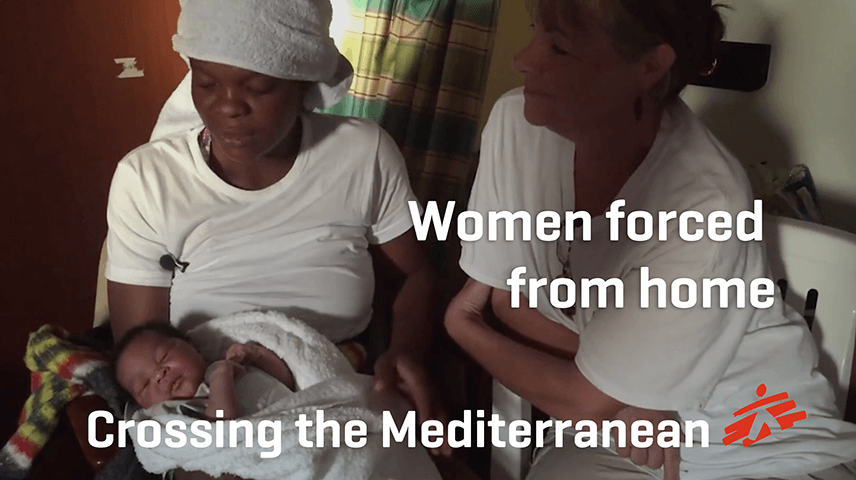Wherever Doctors Without Borders/Médecins Sans Frontières (MSF) meets displaced women and girls, some will be carrying pregnancies due to rape. Testimonies of rape and other forms of sexual violence are common in the dedicated “women’s shelter” on the MV Aquarius, a search and rescue ship operated by SOS Méditerranée with medical support from MSF.
A midwife on the Aquarius, Jonquil Nicholl has worked with women facing a range of health challenges—-including many who were raped before or during the journey. MSF teams take care of women with both wanted and unwanted pregnancies.
Not everyone survives the dangerous sea crossing. For those who do, their time on board may be the first time they receive health care. In 2017, close to two out of three women and girls on board were single travelers—a highly vulnerable group in the displacement context.
Two in five women and girls on board were from Nigeria, and reports indicate that many are being trafficked as part of the sex trade in Europe. Nigerians rescued while crossing the Mediterranean are now more often female than male. MSF’s fleeting encounter on the ship with these young women is a brief but valuable opportunity to alert them to the risks they might face and to provide them with advice about other assistance and protection services onshore.
To mark International Women’s Day on March 8, MSF is featuring stories of displaced women and girls from places including Syria, Myanmar, Burundi, and Nigeria.
Learn more about displaced women's health needs at:
Because I'm a Woman




